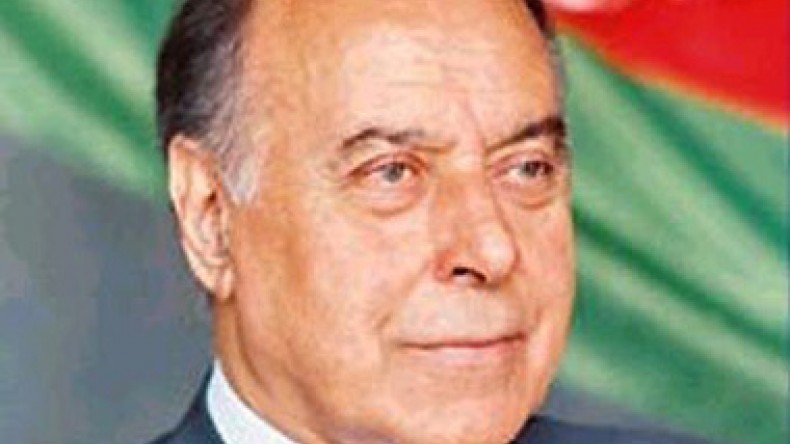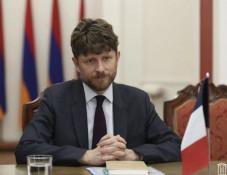
Azerbaijani propaganda edits “inconvenient” quotations by Heydar Aliyev
Azerbaijan’s ruling regime has restarted rewriting the modern history of the country, and this time they venture neither more nor less than “editing” just Heydar Baba. Quotations by Heydar Aliyev about purposeful and well thought-out policy on artificially changing the demographic situation in favor of the Azerbaijanis in Nagorno-Karabakh in Soviet era are actively “rubbed out” on the web.
The revelations by the late President of Azerbaijan, extremely “inconvenient” for the current course of state propaganda, just vanished from the site of the presidential library after the “electronic resources were updated.” Before being “updated,” they were kept in the section titled “Heydar Aliyev. Collection of Electronic Documents.” The electronic versions of the original of newspaper Zerkalo of 23.07.2002, newspaper Baku Worker, July 25, 2002, No. 139 (24318) also vanished, however, references to the original are kept in many articles and in books by various authors.
More, the original of the quotation by Heydar Aliyev has been kept in newspaper Echo of July 24, 2002, No.138 (383) (Screenshot) and in other resources, which are still out of the reach of completely impudent followers of the Azerbaijani propaganda.
We will remind that at the meeting with Azerbaijani journalists on July 22, 2002, Azerbaijani President Heydar Aliyev honestly confessed: “Nagorno-Karabakh problem appeared in 1988. This is not a new problem, that is to say this is an acute conflict. But this problem lasts from the beginning of the 20th century…The things were not normal, either, in the Soviet period…However, despite that, we controlled the situation in Nagorno-Karabakh. At the expense of what? First, certainly, the Soviet system made that possible.
Second, I mean the period when I was first secretary and was assisting the development of Nagorno-Karabakh. At the same time I tried to change the demography there. Nagorno-Karabakh raised the issue of opening an institute, higher education institution. Everybody objected to this in our country. Thinking it over, I decided to open an institute, provided that there should be three sectors – Azerbaijani, Russian and Armenian. The institute was opened. We were sending Azerbaijanis from the neighboring regions to that institute, not to Baku. We opened a big shoe factory there. There was no manpower in Stepanakert. We sent Azerbaijanis there from neighboring settlements. I was making these and other moves in a bid to increase the number of Azerbaijanis in Nagorno-Karabakh and to reduce the number of Armenians. Those who worked in Nagorno-Karabakh at that time are aware of it. In any event, thanks to my willpower and other traits, my word was law for its leadership.”
Newsfeed
Videos






























